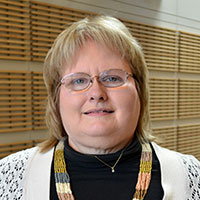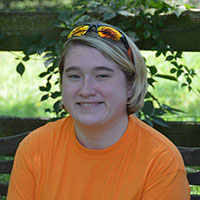STEM in Society
Science, Technology, Engineering and Math are powerful products of human ingenuity and skill. But precisely because they are human, STEM disciplines are inseparable from every other aspect of human life. Social, moral, political, even personal values and choices in everyday life impact, and are impacted by, STEM. For example:
- Brilliant engineering gives us fuel-efficient cars. But a group of brilliant engineers also helped Volkswagen deceive the public into thinking the gas mileage of its diesel cars was better than it was.
- Life-saving MRI technology depends on the discoveries of nuclear physicists. So does the atom bomb.
- Mathematical modeling can help predict the results of political elections before they take place. But it’s possible that hearing a prediction about an election can influence voters, thus potentially changing the results of the election!
In this course we will explore some of the many points of intersection between STEM and Society. Topics will include some subset of the following:
- The nature and importance of scientific methods: is science valuable because of its results? Or because of its methods? Why should we remember, care about, and understand “wrong science” of times past? What’s the difference between science and technology? Between being scientific and being unscientific?
- Environmental ethics and policy: why (or why not) care about the values of renewability (in resources), sustainability (in systems and institutions), biodiversity and indigenousness (in plants animals humans and landscapes)?
- Science, technology, and engineering ethics: do experts have special obligations to educate the non-expert public? Do scientists and engineers on research teams have to act as whistleblowers? Should scientists refrain from/pursue discoveries that could be deadly “in the wrong hands”? Is progress for the sake of progress really good? And if not, what is the goal of good science?
Students will have the opportunity to choose one unit of content by popular vote.
Student Learning Outcomes
- Spot ethical, social, and policy-related concerns that arise in STEM contexts
- Understand something of the history of science and what distinguishes science from other human ways of knowing
- Identify reasons given in support of different positions on questions of social, moral, and political importance in STEM contexts
Course Requirements/Examinations
STEM and Society will focus on practicing skills of written and oral discussion and debate. To demonstrate proficiency in these skills students will:
- Participate in a series of “games” where they will be asked to simulate real-life scenarios where STEM and Society intersect.
- Engage in a series of written and verbal debate-style activities, where they will be asked to make a case for a point of view on a question for the sake of argument, and then given the opportunity to turn around and speak in favor of contrasting/opposing viewpoints.
- Complete a final project to produce an op-ed wiki, with each student contributing an editorial on a pertinent topic of their choice, and then engaging in structured commentary on peer editorials.
Course Instructors
Bio coming soon.
Bio coming soon.
Bio coming soon.
Credit Hours: 1
STEM Skills
Virtually everything in today’s society interfaces with computers. By necessity, tomorrow’s scientists and engineers will need to be very conversant with a wide range of computer related technologies. This class will focus on providing students with exposure to a many different technology applications via fun, hands-on projects involving programming, 3D modeling, 3D-printing, mobile application development, and other topics to support STEM skills.
Course materials will be available in Canvas that will cover the requirements for each project. The class time will be face-to-face and held in a campus computer lab. All materials required for this course will be provided for student use during the session.
Student Learning Outcomes
- Being able to demonstrate the ability to solve basic problems via computer algorithms
- Understanding logic structures
- Use of technology to solve computational
Course Requirements/Examinations
STEM Skills is a project based course. Each of the learning outcomes will be implemented via one or more projects. The course uses online tutorials to allow students to work at their own pace.
Examples of projects (but not limited to) as follows:
- Mobile app development: Computer algorithms and computational problems
- Arduino /computer/breadboard project: Logic, computer algorithms and computational problems
- CAD software/3D print design: computational problems
- Virtual Reality Design: Computer algorithms and computation problems
To be successful in this course the student should participate and complete all projects assigned. Projects will consist of an activity and a written reflection by the student. There will be from 3-5 projects for this course based on time.
Attendance is mandatory each day. One (1) point will be deducted from the final grade for each unexcused absence. The grading scale for this course is an ABC/NC. Each project will be graded on a 100 point scale. The average of all projects will be used to assign a final grade.
Credit Hours: 1
Course Instructors
 Dr. Lila Holt is a lecturer in the Department of Electrical Engineering and Computer Science. She also teaches as an Adjunct Assistant Professor in the College of Education. Her interests include finding ways to better use technologies for learning and for life. Rapid advancements in computers and technology create a need for adaptation for learning and for life skills. Her research covers using technology, including the web and multimedia, for effective communication for instruction and for work place excellence.
Dr. Lila Holt is a lecturer in the Department of Electrical Engineering and Computer Science. She also teaches as an Adjunct Assistant Professor in the College of Education. Her interests include finding ways to better use technologies for learning and for life. Rapid advancements in computers and technology create a need for adaptation for learning and for life skills. Her research covers using technology, including the web and multimedia, for effective communication for instruction and for work place excellence.
Teaching Assistants
 My name is Megan Stanton and I will be a junior at the University of Tennessee-Knoxville in the fall. I am majoring in Computer Engineering and minoring in Cybersecurity, and I am also a part of the Chancellor’s Honors Program. I plan on getting my masters in Cybersecurity when I graduate. I like to volunteer at the Humane Society of the Tennessee Valley whenever I have time, and I also love playing video games. I am very excited to get to know everyone and teach you about exciting STEM topics!
My name is Megan Stanton and I will be a junior at the University of Tennessee-Knoxville in the fall. I am majoring in Computer Engineering and minoring in Cybersecurity, and I am also a part of the Chancellor’s Honors Program. I plan on getting my masters in Cybersecurity when I graduate. I like to volunteer at the Humane Society of the Tennessee Valley whenever I have time, and I also love playing video games. I am very excited to get to know everyone and teach you about exciting STEM topics!
My name is Shahram and I am PhD student at electrical engineering and computer science department. Staring from 2017 I’ve had incredible years at the University of Tennessee. I cannot put into words the amount that I have grown and learned from working with the incredible faculties and staffs both academically and spiritually. I am glad that in the past 3 years, I have had a chance to serve as graduate teaching and research assistant at EECS department and governor’s school, mentor for young scholars, and executive member of graduate student senate (GSS). These are great opportunities for me to serve in a community that I believe is my Home away from Home!
science department. Staring from 2017 I’ve had incredible years at the University of Tennessee. I cannot put into words the amount that I have grown and learned from working with the incredible faculties and staffs both academically and spiritually. I am glad that in the past 3 years, I have had a chance to serve as graduate teaching and research assistant at EECS department and governor’s school, mentor for young scholars, and executive member of graduate student senate (GSS). These are great opportunities for me to serve in a community that I believe is my Home away from Home!
Hello, my name is MeiLi. I’m currently pursuing a Master’s degree in Computer  Science at the University of Tenessee-Knoxville. In my free time, I enjoy watching anime and sewing, and have a not so subtle obsession with kpop. I look forward to learning with you guys this summer!
Science at the University of Tenessee-Knoxville. In my free time, I enjoy watching anime and sewing, and have a not so subtle obsession with kpop. I look forward to learning with you guys this summer!
My name is Taylor and I am a 2nd year Ph.D. student in Ecology and Evolutionary  Biology. I study freshwater systems (lakes, rivers, and streams) and how these habitats and the organisms that live within them are impacted by human activities. In my free time I like to run and hike on trails, make pastries, and play with my two dogs. This is my first year as a GSSE TA and I am excited to work with all of you!
Biology. I study freshwater systems (lakes, rivers, and streams) and how these habitats and the organisms that live within them are impacted by human activities. In my free time I like to run and hike on trails, make pastries, and play with my two dogs. This is my first year as a GSSE TA and I am excited to work with all of you!